https://consortiumnews.com/2021/10/08/never-having-to-say-youre-sorry/
October 8, 2021
Karen J. Greenberg says the past two decades have seen no accountability for the lawless U.S. policies of the war on terror.
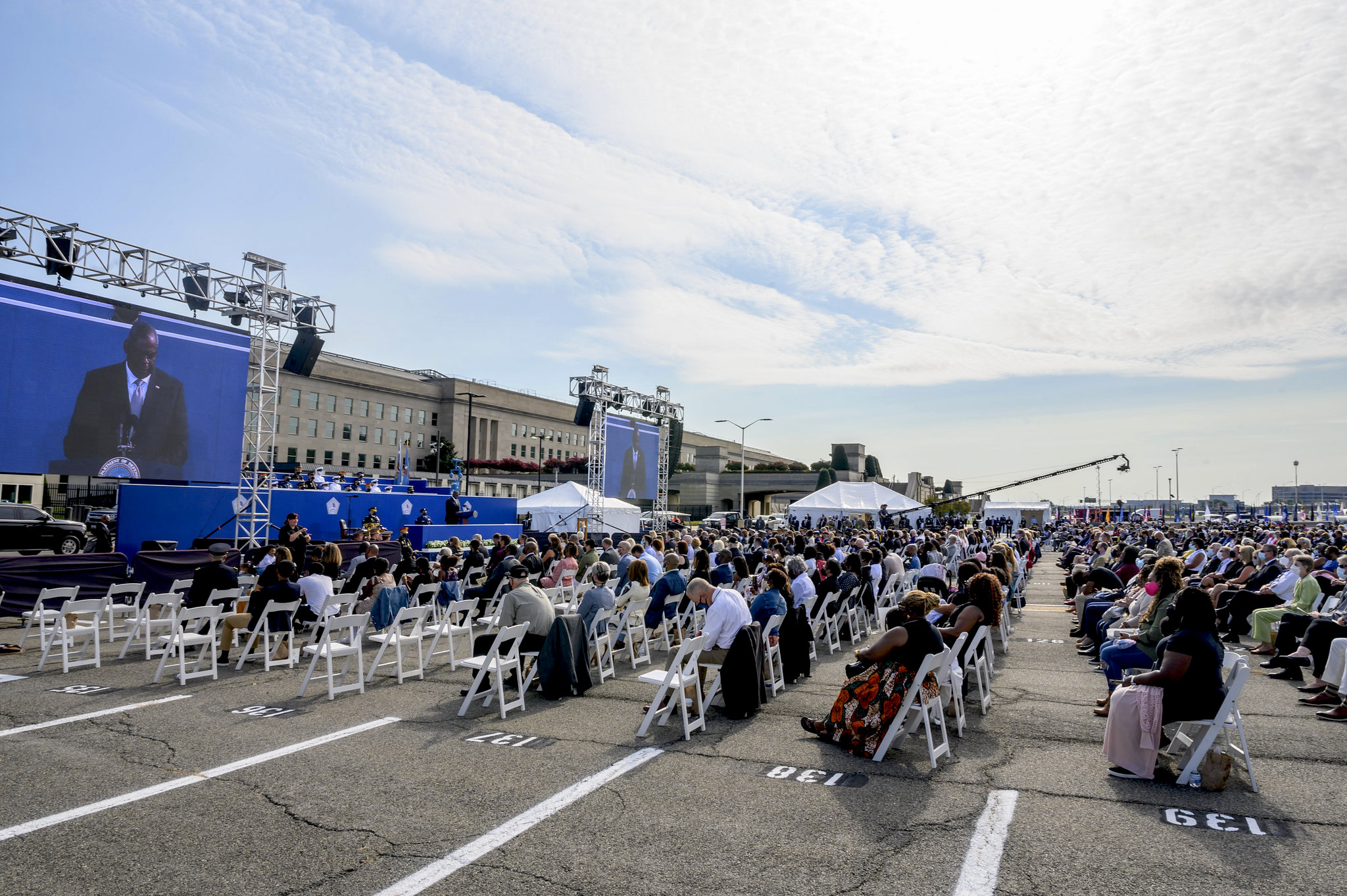
U.S. Secretary of Defense Lloyd Austin delivers remarks during the Pentagon’s 20th memorial service for 9/11. (DoD, Jack Sanders)
By Karen J. Greenberg
TomDispatch.com
 The anniversary of the 9/11 attacks was marked by days of remembrances — for the courageous rescue workers of that moment, for the thousands murdered as the Twin Towers collapsed, for those who died in the Pentagon, or in Shanksville, Pennsylvania, fighting off the hijackers of the commercial jet they were in, as well as for those who fought in the forever wars that were America’s response to those al-Qaeda attacks.
The anniversary of the 9/11 attacks was marked by days of remembrances — for the courageous rescue workers of that moment, for the thousands murdered as the Twin Towers collapsed, for those who died in the Pentagon, or in Shanksville, Pennsylvania, fighting off the hijackers of the commercial jet they were in, as well as for those who fought in the forever wars that were America’s response to those al-Qaeda attacks.For some, the memory of that horrific day included headshaking over the mistakes this country made in responding to it, mistakes we live with to this moment.
Among the more prominent heads being shaken over the wrongdoing that followed 9/11, and the failure to correct any of it, was that of Jane Harman, a Democrat from California, who was then in the House of Representatives. She would join all but one member of Congress — fellow California representative Barbara Lee — in voting for the remarkably vague Authorization for the Use of Force, or AUMF, which paved the way for the invasion of Afghanistan and so much else.
It would, in fact, put Congress in cold storage from then on, allowing the president to bypass it in deciding for years to come whom to attack and where, as long as he justified whatever he did by alluding to a distinctly imprecise term: terrorism. So, too, Harman would vote for the Patriot Act, which would later be used to put in place massive warrantless surveillance policies, and then, a year later, for the Bush administration’s invasion of Iraq (based on the lie that Iraqi ruler Saddam Hussein possessed weapons of mass destruction).
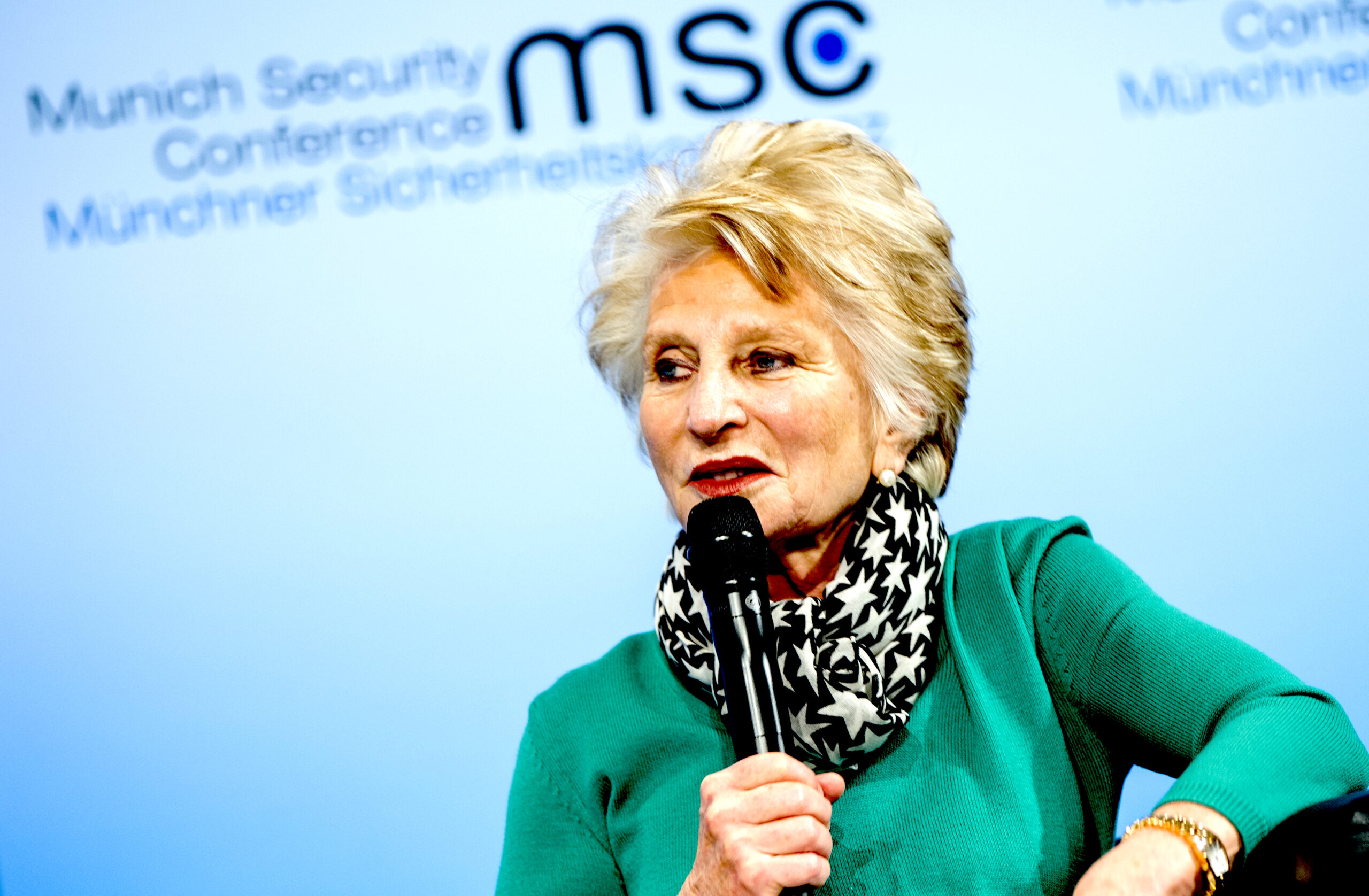
Jane Harman during the 2017 Munich Security Conference. (Mueller, CC BY 3.0, Wikimedia Commons)
But on the occasion of the 20th anniversary of the attacks, Harman offered a different message, one that couldn’t have been more appropriate or, generally speaking, rarer in this country — a message laced through and through with regret.
“[W]e went beyond the carefully tailored use of military force authorized by Congress,” she wrote remorsefully, referring to that 2001 authorization to use force against al-Qaeda and Osama bin Laden. So, too, Harman railed against the decision, based on “cherry-picked intelligence,” to go to war in Iraq; the eternal use of drone strikes in the forever wars; as well as the creation of an offshore prison of injustice at Guantanamo Bay, Cuba, and of CIA black sites around the world meant for the torture of prisoners from the war on terror.
The upshot, she concluded, was to create “more enemies than we destroyed.”
Such regrets and even apologies, while scarce, have not been utterly unknown in post-9/11-era Washington. In March 2004, for example, Richard Clarke, the counterterrorism chief for the Bush White House, would publicly apologize to the American people for the administration’s failure to stop the 9/11 attacks.
“Your government failed you,” the former official told Congress and then proceeded to criticize the decision to go to war in Iraq as well. Similarly, after years of staunchly defending the Iraq War, Senator John McCain would, in 2018, finally term it “a mistake, a very serious one,” adding, “I have to accept my share of the blame for it.” A year later, a PEW poll would find that a majority of veterans regretted their service in Afghanistan and Iraq, feeling that both wars were “not worth fighting.”

Terry J. Albury. (FBI, Wikimedia Commons)
Recently, some more minor players in the post-9/11 era have apologized in unique ways for the roles they played. For instance, Terry Albury, an FBI agent, would be convicted under the Espionage Act for leaking documents to the media, exposing the bureau’s policies of racial and religious profiling, as well as the staggering range of surveillance measures it conducted in the name of the war on terror.
Sent to prison for four years, Albury recently completed his sentence. As Janet Reitman reported in The New York Times Magazine, feelings of guilt over the “human cost” of what he was involved in led to his act of revelation. It was, in other words, an apology in action.
As was the similar act of Daniel Hale, a former National Security Agency analyst who had worked at Bagram Air Base in Afghanistan helping to identify human targets for drone attacks. He would receive a 45-month sentence under the Espionage Act for his leaks — documents he had obtained on such strikes while working as a private contractor after his government service.
As Hale would explain, he acted out of a feeling of intense remorse. In his sentencing statement, he described watching “through a computer monitor when a sudden, terrifying flurry of Hellfire missiles came crashing down, splattering purple-colored crystal guts.”
His version of an apology-in-action came from his regret that he had continued on at his post even after witnessing the horrors of those endless killings, often of civilians. “Nevertheless, in spite of my better instinct, I continued to follow orders.” Eventually, a drone attack on a woman and her two daughters led him over the brink.
“How could I possibly continue to believe that I am a good person, deserving of my life and the right to pursue happiness” was the way he put it and so he leaked his apology and is now serving his time.
‘We Were Wrong, Plain and Simple’
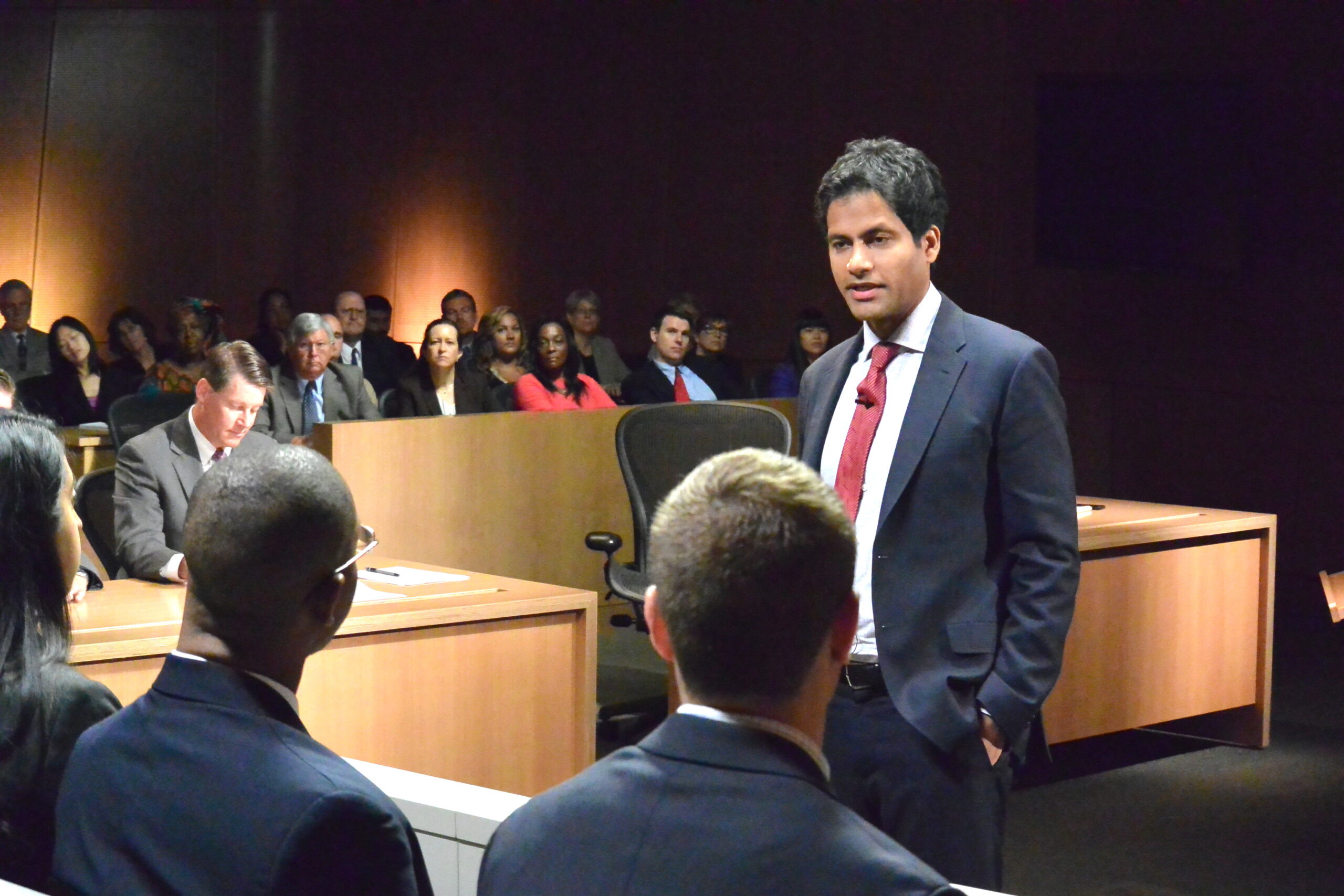
Jameel Jaffer at Penn State in 2013. (Penn State, Flickr, CC BY-NC-ND 2.0)
Outside of government and the national security state, there have been others who struck a chord of atonement as well. On the 20th anniversary of 9/11, for instance, Jameel Jaffer, once deputy legal director of the ACLU and now head of the Knight First Amendment Institute, took “the opportunity to look inward.” With some remorse, he reflected on the choices human-rights organizations had made in campaigning against the abuse and torture of war-on-terror prisoners.
Jaffer argued that their emphasis should have been less on the degradation of American “traditions and values” and more on the costs in terms of human suffering, on the “experience of the individuals harmed.” In taking up the cases of individuals whose civil liberties had often been egregiously violated in the name of the war on terror, the ACLU revealed much about the damage to their clients.
Still, the desire to have done even more clearly haunts Jaffer. Concluding that we “substituted a debate about abstractions for a debate about prisoners’ specific experiences,” Jaffer asks, “[I]s it possible” that the chosen course of the NGOs “did something more than just bracket prisoners’ human rights — that it might have, even if only in a small way, contributed to their dehumanization as well?”
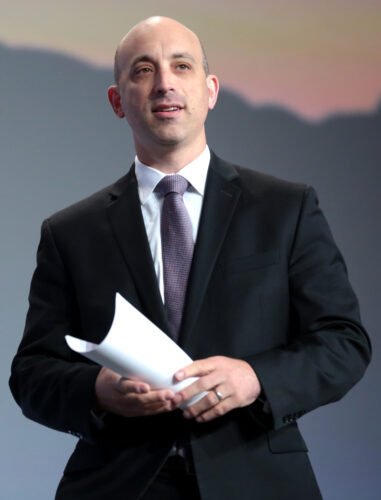
Jonathan Greenblatt in 2017. (Gage Skidmore, CC BY-SA 3.0, Wikimedia Commons)
Jonathan Greenblatt, now head of the Anti-Defamation League (ADL), spoke in a similarly rueful fashion about that organization’s decision to oppose plans for a Muslim community center in lower Manhattan, near Ground Zero — a plan that became known popularly as the “Ground Zero Mosque.”
As the 20th anniversary approached, he said bluntly, “We owe the Muslim community an apology.” The intended center fell apart under intense public pressure that Greenblatt feels the ADL contributed to.
“[T]hrough deep reflection and conversation with many friends within the Muslim community,” he adds, “the real lesson is a simple one: we were wrong, plain and simple.”
The ADL had recommended that the center be built in a different location. Now, as Greenblatt sees it, an institution that “could have helped to heal our country as we nursed the wounds from the horror of 9/11” never came into being.
The irony here is that while a number of those Americans least responsible for the horrors of the last two decades have directly or indirectly placed a critical lens on their own actions (or lack thereof), the figures truly responsible said not an apologetic word. Instead, there was what Jaffer has called an utter lack of “critical self-reflection” among those who launched, oversaw, commanded, or supported America’s forever wars.
Just ask yourself: When have any of the public officials who ensured the excesses of the war on terror reflected publicly on their mistakes or expressed the least sense of regret about them (no less offering actual apologies for them)?
Where are the generals whose reflections could help forestall future failed attempts at “nation-building” in countries such as Afghanistan, Iraq, Libya or Somalia? Where are the military contractors whose remorse led them to forsake profits for humanity?
Where are any voices of reflection or apology from the military-industrial complex including from the CEOs of the giant weapons makers who raked in fortunes off those two decades of war? Have any of them joined the small chorus of voices reflecting on the wrongs that we’ve done to ourselves as a nation and to others globally? Not on the recent 9/11 anniversary, that’s for sure.
Looking Over Your Shoulder or Into Your Heart?
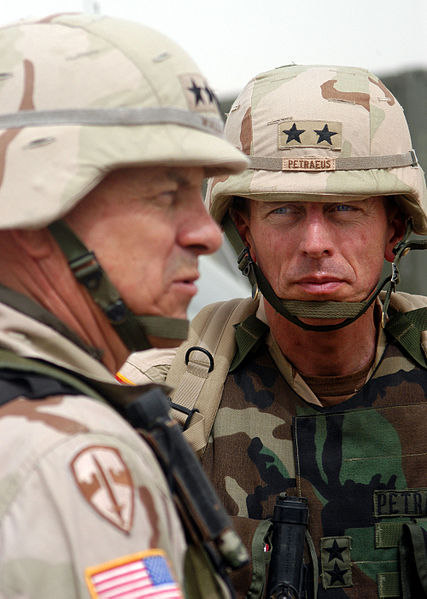
David Petraeus, facing camera, during the U.S. invasion of Iraq in 2003, with Lt. Gen. William S. Wallace. (DoD, Joshua Hutcheson, Wikimedia Commons)
What we still normally continue to hear instead is little short of a full-throated defense of their actions in overseeing those disastrous wars and other conflicts.
To this day, for instance, former Afghan and Iraq War commander David Petraeus speaks of this country’s “enormous accomplishments” in Afghanistan and continues to double down on the notion of nation-building.
He still insists that, globally speaking, Washington “generally has to lead” due to its “enormous preponderance of military capabilities,” including its skill in “advising, assisting, and enabling host nations’ forces with the armada of drones we now have, and an unequal[ed] ability to fuse intelligence.”
Similarly, Lieutenant General H.R. McMaster, national security adviser to Donald Trump, had a virtual melt down on MSNBC days before the anniversary, railing against what he considered President Joe Biden’s mistaken decision to actually withdraw all American forces from Afghanistan.
“After we left Iraq,” he complained, “Al-Qaeda morphed into ISIS, and we had to return.” But it didn’t seem to cross his mind to question the initial ill-advised and falsely justified decision to invade and occupy that country in the first place.
And none of this is atypical. We have repeatedly seen those who created the disastrous post-9/11 policies defend them no matter what the facts tell us.
As a lawyer in the Department of Justice’s Office of Legal Counsel, John Yoo, who wrote the infamous memos authorizing the torture of war-on-terror detainees under interrogation, followed up the 2011 killing of Osama bin Laden in Pakistan with a call for President Barack Obama to “restart the interrogation program that helped lead us to bin Laden.”
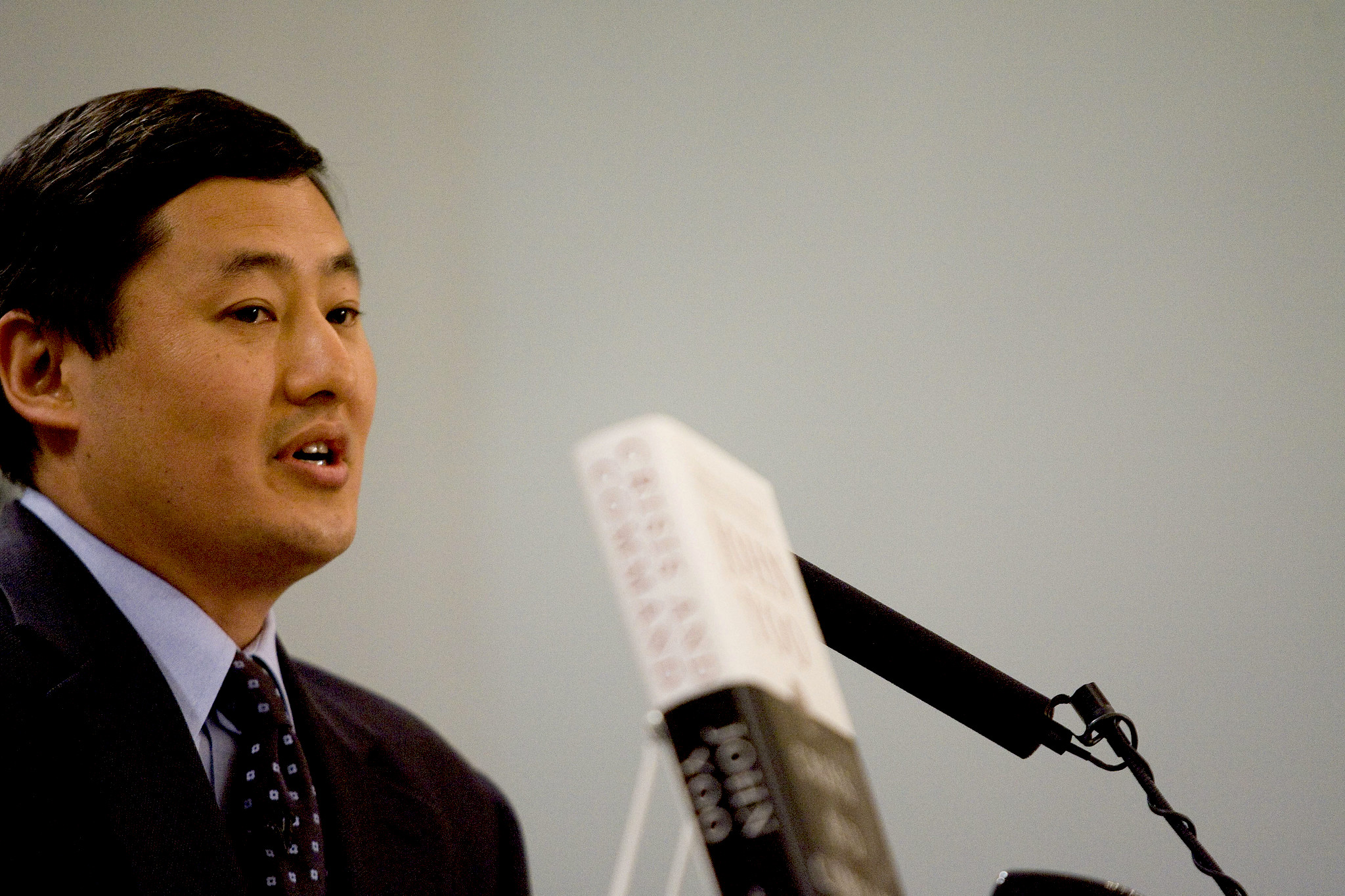
John Yoo, who authored the infamous “torture memos” while serving in the George W. Bush administration’s Justice Department, in 2010. (Miller Center, Flickr, CC BY 2.0)
As the Senate Torture Report on Interrogation would conclude several years later, the use of such brutal techniques of torture did not in fact lead the U.S. to bin Laden. On the contrary, as NPR has summed it up, “The Senate Intelligence Committee came to the conclusion that those claims are overblown or downright lies.”
Among the unrepentant, of course, is George W. Bush, the man in the White House on 9/11 and the president who oversaw the invasions of Afghanistan and Iraq, as well as the securitization of key American institutions and policies.
Bush proved defiant on the 20th anniversary. The optics told it all. Speaking to a crowd at Shanksville, Pennsylvania, where that hijacked plane with 40 passengers and four terrorists crashed on 9/11, the former president was flanked by former Vice President Dick Cheney. His Machiavellian oversight of the worst excesses of the war on terror had, in fact, led directly to era-defining abrogations of laws and norms. But no apologies were forthcoming.
Instead, in his speech that day, Bush highlighted in a purely positive fashion the very policies his partnership with Cheney had spawned. “The security measures incorporated into our lives are both sources of comfort and reminders of our vulnerability,” he said, giving a quiet nod of approval to policies that, if they were “comforting” in his estimation, also defied the rule of law, constitutional protections and previously sacrosanct norms limiting presidential power.
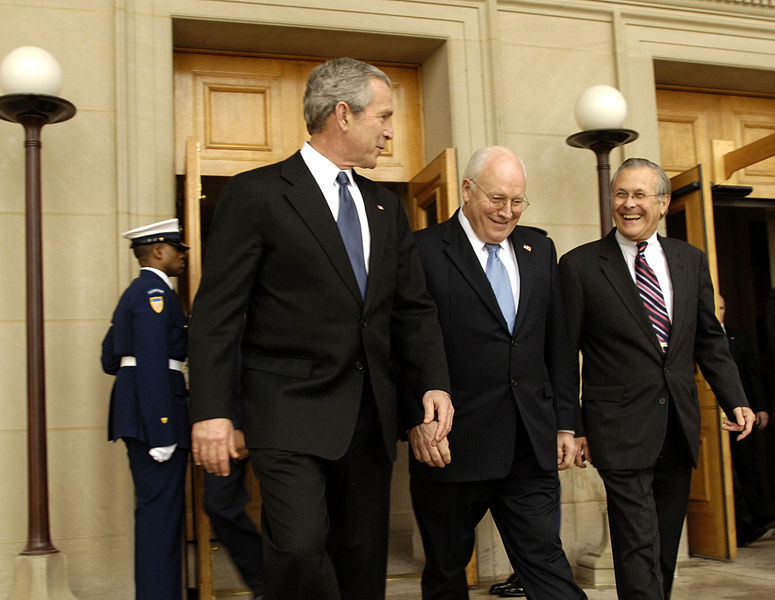
Dec. 15, 2006: President George W. Bush, Vice President Dick Cheney and Defense Secretary Donald Rumsfeld leave Pentagon on way to Rumsfeld’s farewell ceremony, . (DoD, D. Myles Cullen)
Over the course of these 20 years, this country has had to face the hard lesson that accountability for the mistakes, miscalculations, and lawless policies of the war on terror has proven not just elusive, but inconceivable.
Typically, for instance, the Senate Torture Report, which documented in 6,000 mostly still-classified pages the brutal treatment of detainees at CIA black sites, did not lead to any officials involved being held accountable. Nor has there been any accountability for going to war based upon that lie about Iraq’s supposed weapons of mass destruction.
Instead, for the most part, Washington has decided all these years later to continue in the direction outlined by Obama during the week leading up to his 2009 inauguration. “I don’t believe that anybody is above the law,” he said. “On the other hand, I also have a belief that we need to look forward as opposed to looking backwards… I don’t want [CIA personnel and others] to suddenly feel like they’ve got to spend all their time looking over their shoulders and lawyering.”
Looking over their shoulders is one thing, looking into their own hearts quite another.
The recent deaths of former Secretary of Defense Donald Rumsfeld, who, among other horrors, supervised the building of Guantanamo and the use of brutal interrogation techniques there and elsewhere and of former CIA General Counsel John Rizzo, who accepted the reasoning of Department of Justice lawyers when it came to authorizing torture for his agency, should remind us of one thing:
America’s leaders, civilian and military, are unlikely to rethink their actions that were so very wrong in the war on terror. Apologies are seemingly out of the question.
So, we should be thankful for the few figures who courageously breached the divide between self-righteous defensiveness when it came to the erosion of once-hallowed laws and norms and the kind of healing that the passage of time and the opportunity to reflect can yield. Perhaps history, through the stories left behind, will prove more competent when it comes to acknowledging wrongdoing as the best way of looking forward.
No comments:
Post a Comment